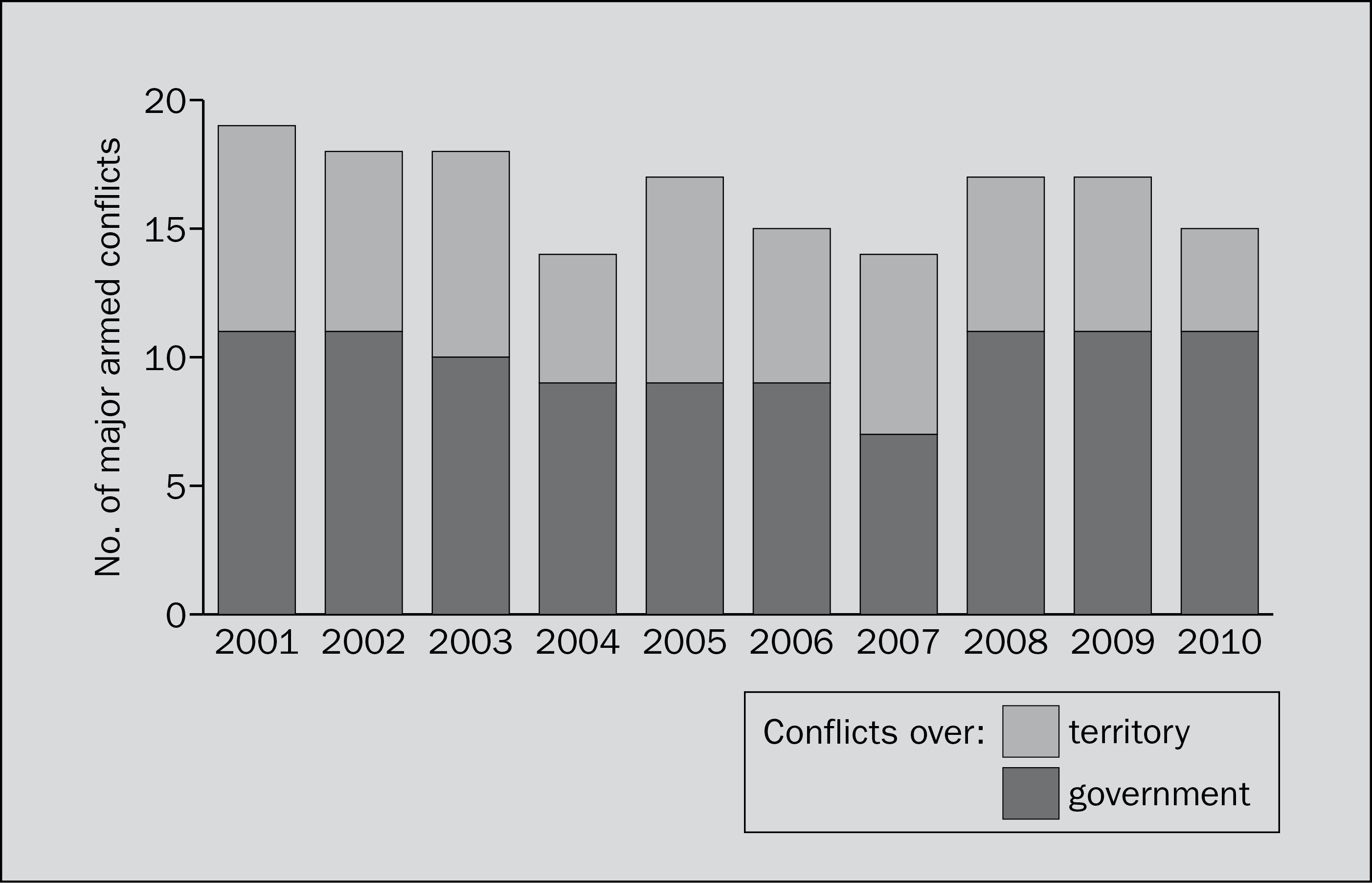Appendix 2A. Patterns of major armed conflicts, 2001–10
I. Global patterns
II. Regional patterns
III. Changes in the table of conflicts for 2010
IV. Major armed conflicts in a wider context
V. Table of major armed conflicts
Figure 2A.1. Timeline of major armed conflicts, 2001–10
Figure 2A.2. Regional distribution and total number of major armed conflicts, 2001–10
Table 2A.1. Number of major armed conflicts, by region and type, 2001–10
Table 2A.2. Number of locations of major armed conflicts, by region, 2001–10
Table 2A.3. Major armed conflicts in 2010
Appendix 2A presents the Uppsala Conflict Data Program (UCDP) data on patterns of major armed conflicts in 2001–10.
Summary
In 2010, 15 major armed conflicts were active in 15 locations around the world.
| Conflict location | |
|---|---|
| Africa | Rwanda* ↓ |
| Somalia ↑ | |
| Sudan ↑ | |
| Uganda* ↓ | |
| Americas | Colombia |
| Peru ↓ | |
| USA* ↓ | |
| Asia | Afghanistan ↑ |
| India (Kashmir) | |
| Myanmar (Karen State) ↑ | |
| Pakistan* ↓ | |
| Philippines ↑ | |
| Middle East | Iraq ↓ |
| Israel (Palestinian territories) ↓ | |
| Turkey (Kurdistan)* ↑ |
Where a conflict is over territory, the disputed territory appears in parentheses after the country name. All other conflicts are over government.
* Fighting in these conflicts also took place in other locations.
↑ Increase in battle-related deaths from 2009.
↓ Decrease in battle-related deaths from 2009.
Only 4 of the major armed conflicts in 2010 were over territory, with 11 being fought over government. Except for the year 2007, conflicts over government outnumbered those over territory in every year of the period 2001–10.
For the seventh year running, no major interstate conflict was active in 2010. Over the decade 2001–10, only 2 of the total of 29 major armed conflicts have been interstate.
Major armed conflicts, 2001–10

Lotta Themnér (Sweden) is a Research Coordinator with the Uppsala Conflict Data Program at the Department of Peace and Conflict Research, Uppsala University.
Professor Peter Wallensteen (Sweden) is Dag Hammarskjöld Chair in Peace and Conflict Research at Uppsala University, where he directs the Uppsala Conflict Data Program, and Richard G. Starmann Sr Research Professor of Peace Studies at the University of Notre Dame.